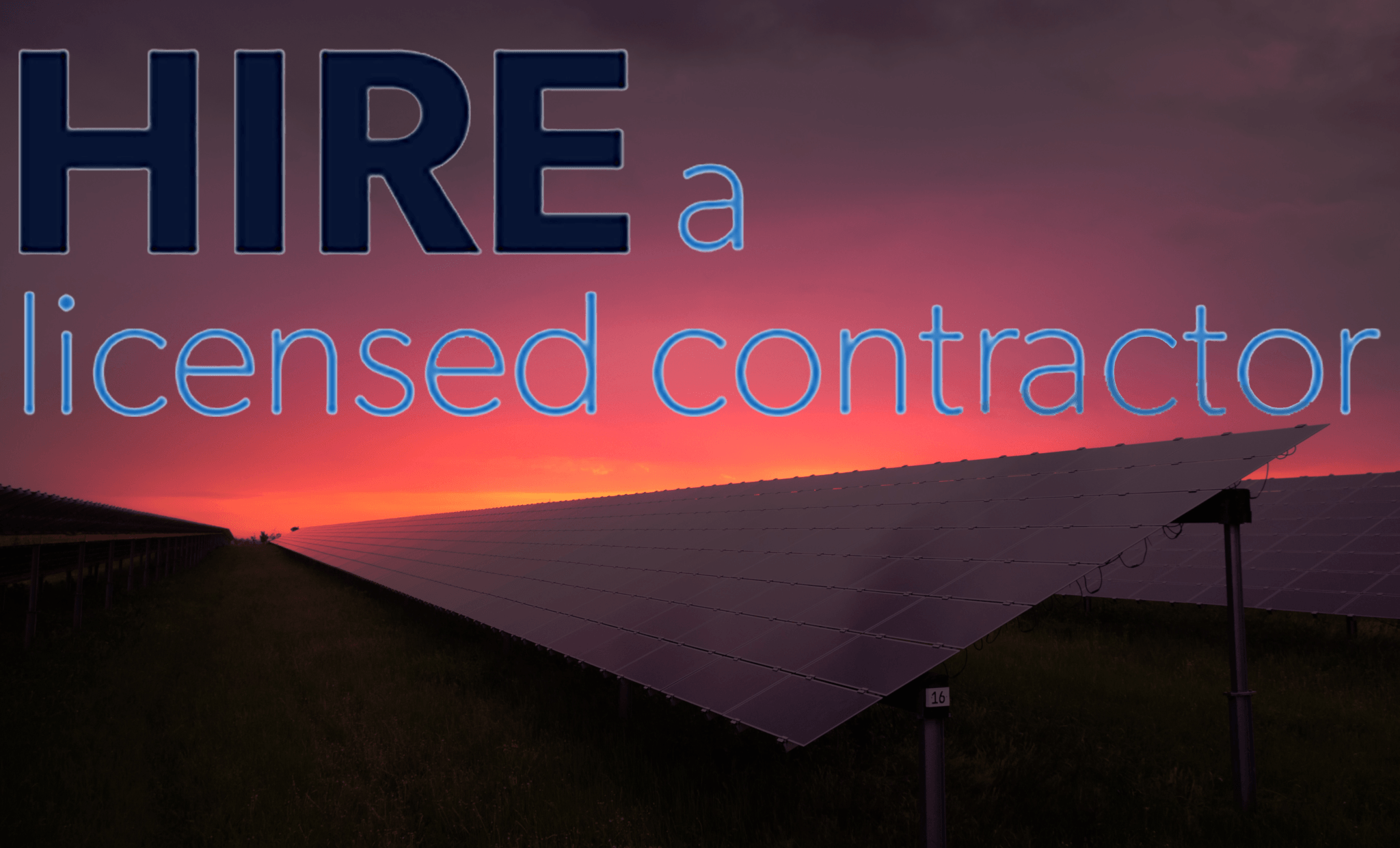Contractor Selection Part 2 US Solar Institute Educates Homeowners on Contractor Selection
Advanced Solar Training School Educates Future Solar Consumers
FOR IMMEDIATE RELEASE, Fort Lauderdale, FL, August 2019 – Contractor selection part 2 expands on the previously published “contractor selection part 1” and is not meant to bash any particular contractor. The purpose of this second part (out of five) is to educate homeowners on how to properly choose a reputable company that will ensure proper and code-compliant installation in a cost-effective and timely manner. The US Solar Institute, known for its advanced solar training in a hands-on and online course settings, continue to expand on its explanation of how to properly select a Florida contractor to do whatever work they are hired to do.
There are five major red flags that a homeowner should look for when going through the contractor selection process. These five key points are proper licensure (last post’s emphasis), workman’s comp and liability insurance (this post’s emphasis), in-house team of workers (next week’s post), experience, and reputation. It has already been established that a homeowner should look for proper licensure when doing their contractor selection and will expand on why having proper insurance is the second most important factor.
Although not required to have it by the state itself, most jurisdictions require a company to have insurance. For example, our solar construction company partner, Florida Solar One, is not allowed to obtain construction permits from a city without submitting proof of insurance. The state of Florida does not require it, but they have found that every jurisdiction requires it. It is so imperative for a company, as well as the consumer, to ensure that there is insurance in place is because anything could go wrong at any time, and you want to be protected at all costs. What would happen if the contractor backs up too much and dents your garage door? What would happen if they are mid-installation, a sudden downpour happens, and now your attic is covered in water and you have structural damage on the house? These are just some examples of things that, although improbable, could very well happen. You, as a homeowner, want to be protected by their insurance policy and get reparations for these unfortunate events.
Workman’s compensation is another form on insurance that is set in place to protect the laborers in case they get injured on the job. In most industries, any company with three or less employees is NOT required to have workman’s comp insurance. In the construction industry, and yes, solar panel installation falls under construction, a company is required to have workman’s comp insurance. If the company has one or more laborers, excluding the owner/principal, it is obligatory to carry workman’s compensation insurance. There are numerous ways to get around this mandate, i.e. the owner can file for workman’s compensation exemption, but it is dangerous as a homeowner to hire a contractor without this type of insurance.
Let’s work with the assumption that a laborer is installing solar panels on your Broward home, and he/she trips on a wire and falls off your roof. The employee gets hurt and must be rushed to the hospital. The employee also does not have health insurance. The company that hired the employee does not carry workman’s compensation insurance. The employee now has $85,000 worth of medical bills that he/she cannot afford. What is the likely sequence of events that can happen in this situation? The injured laborer will likely get into a lawsuit against the employer for not having workman’s compensation insurance in place to protect him/her from work injuries. He/she can also come after you, the homeowner, for not providing a relatively safe working environment for him/her. There have been MANY cases where an injured worker sues (and wins) a homeowner because he/she got injured at your house. Remember the 1990’s movie “Liar Liar” with Jim Carrey? They presented a case where a burglar broke into someone’s house and hurt himself with the set of kitchen knives. He sued the homeowner and won. Although comical, these types of frivolous lawsuits are rampant in the United States, and no less in the construction industry.
The injured laborer proceeds to sue you, the homeowner, while the legal proceedings against the employer are still taking place. What happens to you now? The judge gives him/her the win and you are responsible for his medical bills. Do you think it is important to make sure that the contractor you chose to have general liability and workman’s comp insurance in place? Have we convinced you yet?
In summary, aside from considering proper licensure in your contractor selection process, you should also ensure that the solar panel installation company you choose to hire is properly insured and protected. These are meant to protect YOU. Do not be fooled into thinking that, because their van says “licensed and insured” it actually means that they are. Ask for proof. Ask to be named as an Additional Insured on their policies. Ask to give you a hard copy of these documents and protect yourself, because contractors are just looking out for themselves (and often not even their employees).
About US Solar Institute: US Solar Institute is a Florida Licensed Vocational college dedicated to the hands-on and online solar education. They have beginner and advanced solar training courses. They are located at 1024 NE 43rd Ct, Oakland Park, FL 33334. They can be reached at 954-236-4577 and emailed to info@ussolarinstitute.com

